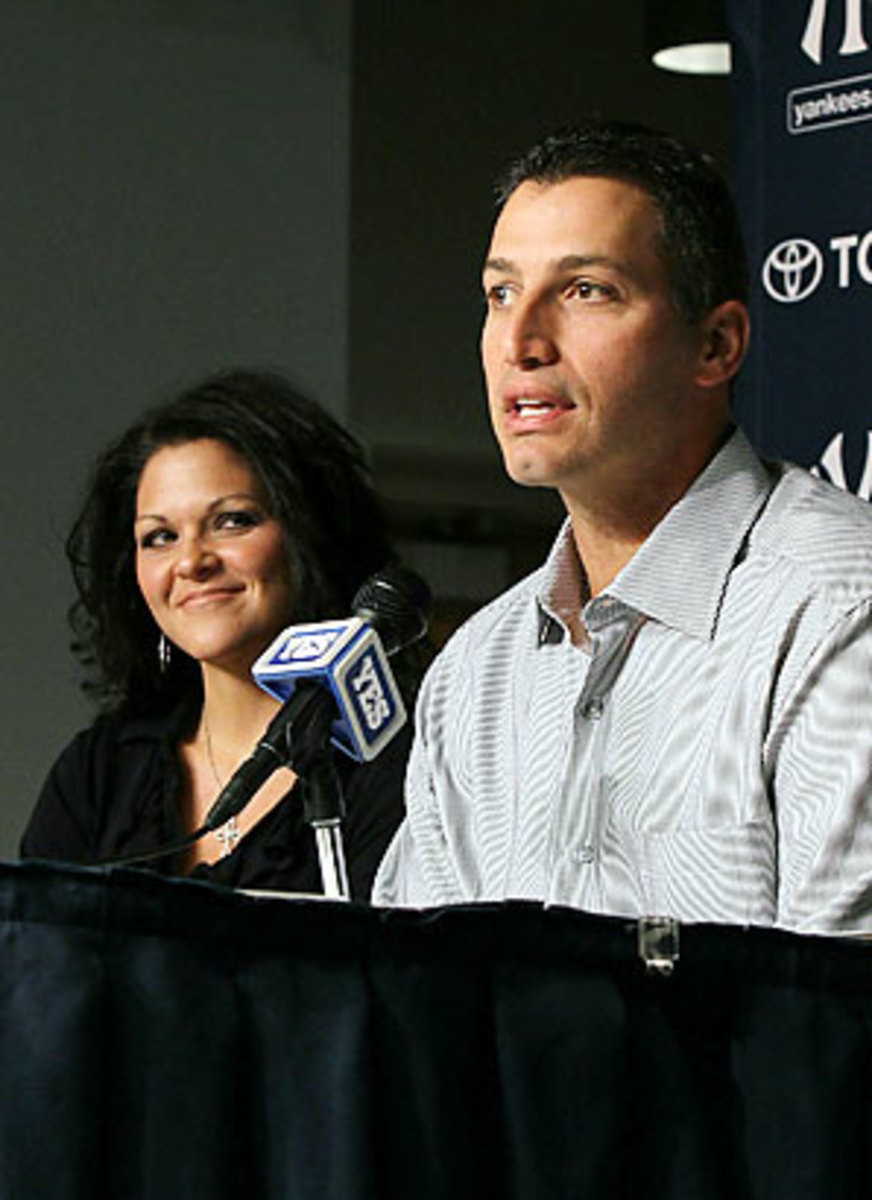Pettitte exits major league stage with measure of care and honesty
NEW YORK -- Even in retirement Andy Pettitte was modest about his accomplishments and perhaps a little too earnest about his intentions.
The longtime Yankee lefthander is too genuine to answer any question dishonestly, and so on Friday morning -- at his retirement news conference -- he admitted that his arm felt "great" after working out the past few weeks, that pitching had become "a little easier" in recent years, that he felt "a tremendous amount of pressure" to return to the Yankees and that his whole family -- sans his five-year-old son Luke -- was supportive of him playing one more year.
All of that would suggest a possible return to the mound. Pettitte even said that as recently as two weeks ago, he was pretty sure he was coming back. When asked if he wanted to report to spring training and see how he felt, he replied, "If I go, I know I'll get through it." With New York's rotation in disarray -- two spots are unfilled and a third is occupied by inconsistent starter A.J. Burnett -- those words were likely maddening to Yankees fans.
But while the physical part of his workouts were going well, he found his desire to compete was gone, confessing, "My heart's not where it's supposed to be." He added that "it definitely is tough when you feel like you can do something physically." As badly as the Yankees need him, Pettitte, who publicly wears his Southern sensibility and Christian faith, needed to be true to himself.
In his long, rambling, almost contradictory answers from the podium, we can plainly see how Pettitte, who finished in the top-six in Cy Young voting five times in his 16-year career and made the All-Star team just last season, was clearly conflicted over his decision. Before he hurt his groin last August he was en route to one of his best seasons as a pro, and he finished 11-3 with a 3.28 ERA.
While Pettitte said, "I'm not going to play this season, 100 percent," he hedged slightly when asked if the door was ajar for a return in 2012. "You can never say never," he conceded. But a man like Pettitte isn't likely to change his mind. He spoke often of his family, including his wife, Laura, and their four children, ranging in ages from five to 16, and how he'd now have the chance to watch and even coach them in their own sports.
Pettitte chose not to use the word retire, only because that word implies he is no longer going to do any kind of work. "I'm done with baseball," he said. "As a man, you want to work and I'm gonna work." He said he believes God will help find his new passion because, for now, baseball has been his only pursuit. "That's all I know," Pettitte said. "I'm a pitcher. That's all I know how to do."
He insisted throughout his drawn-out decision-making process that he didn't want to be a story and acknowledged how important public perception is to him. "I didn't want to come back and be bad," he said. Further, he tried to close any wiggle room about unretiring a year from now as he gestured around the room: "I can tell you, I'd be embarrassed because I've done this."
There are two admittedly small consolations for Yankees fans. One, it was clear Pettitte put great thought into his decision. Cognizant of the lurch the club is in without his arm in the rotation, Pettitte agonized for weeks and said he became rather irritable -- to which his wife, Laura, nodded her approval -- over the indecision.
Two, Pettitte handled this the right way, not rushing to any public proclamation only to change his mind later. Instead, he told general manager Brian Cashman as soon as the club was eliminated that he shouldn't be counted on for 2011. That the Yankees haven't found a more suitable replacement is a management problem, not a communication problem with Pettitte.
When asked about his Hall of Fame credentials, Pettitte said, "I've never considered myself a Hall of Famer." He even helped dispel the notion that he was a dominant postseason pitcher, noting the similarity of his numbers in the regular season. He was 240-138 with a 3.88 ERA in the regular season (. 635) and 19-10 (. 655) with a 3.83 ERA in postseason. Still, those 19 playoff wins are a major league record and more than the totals that nine other teams have in their histories.
Such honesty helped him considerably in the wake of the Mitchell Report revelation that he used human growth hormone. Any implication of using performance-enhancing drugs kills the public perception of most players, but Pettitte insisted he used HGH only "for two days" while trying to recover from an injury and, in a statement, said, "I felt an obligation to get back to my team as soon as possible."
On Friday morning Pettitte acknowledged that because he never had overpowering stuff on the mound, he gave up a lot of hits and always had to find a way out of jams. Born with the mentality that "you gotta grind your way through it," he said he didn't feel like he could grind his way through another season -- in New York and in this division -- without a full commitment. The flesh was willing; the spirit was weak.
Though his decision to retire could subject some unproven or over-the-hill Yankee starters to the meat grinder of the AL East, Pettitte wanted to go out on his terms, and those terms were accountable and honest -- and a mighty fine pitcher too.






